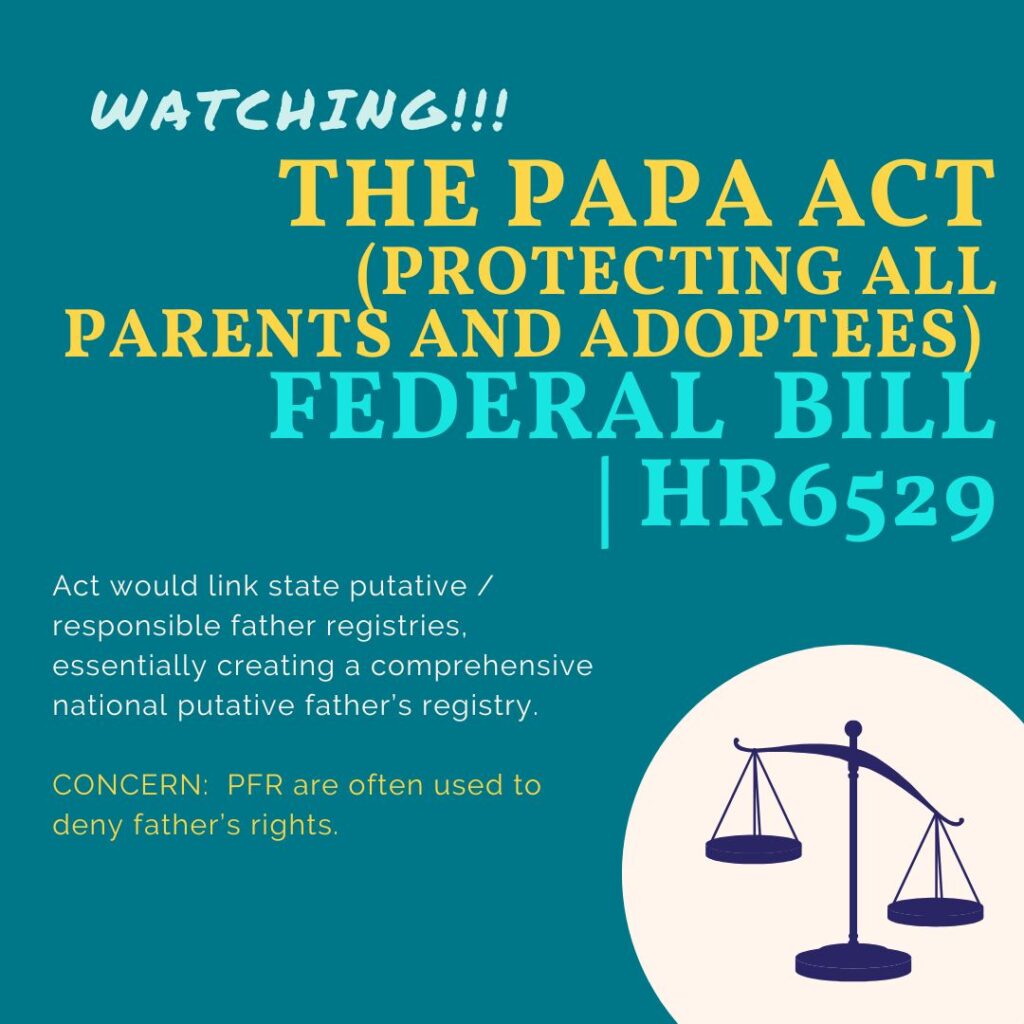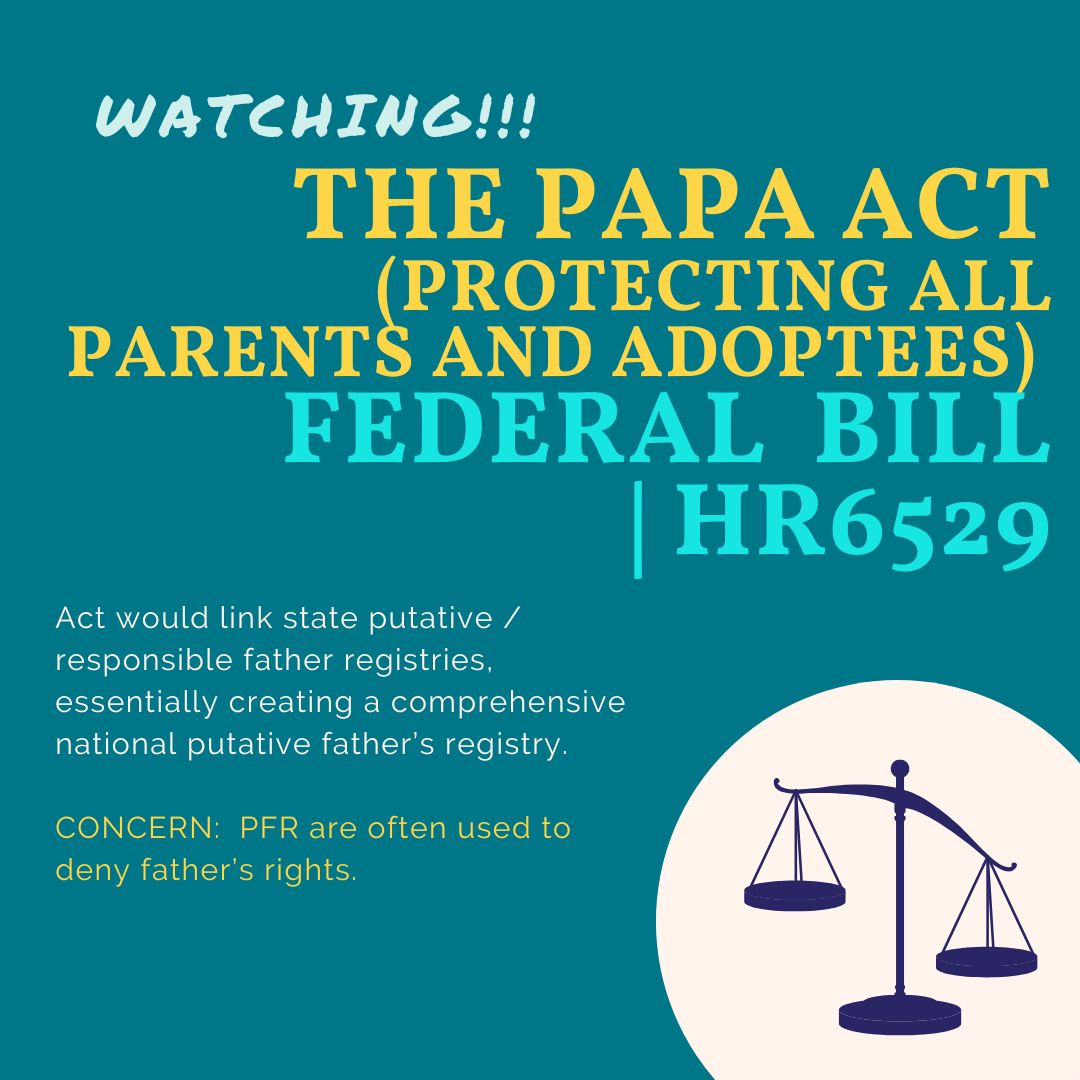
H.R. 6529, the PAPA Act, would establish a national responsible father registry consisting of information about possible biological fathers identified in any responsible father registry established by any State or Indian tribe, and seek to have the information in each such responsible father registry provided to the national registry voluntarily.
1) Empower men and protect their parental rights by enabling them to register in one state to obtain notice of a proceeding in a different state.
2) Take the burden off women to identify potential fathers, protecting a woman’s privacy, especially in cases of rape or domestic violence; and
3) Enable domestic infant adoptions to proceed quicker.
Who is a Putative Father? A putative father is a man whose legal relationship to a child has not been established, but claims to be the father or who is alleged to be the father of a child who is born to a woman to whom he is not married at the time of the child’s birth. The Federal Social Security Act requires states to have in place procedures for mothers and putative fathers to acknowledge paternity of a child, including a hospital-based program for the voluntary acknowledgment of paternity that focuses on the period immediately before or after the birth of the child.
However, this is completely dependent on a father having the KNOWLEDGE that he has conceived a child or is the father of a child just born and has legal standing/ cooperation from the child’s mother to establish paternity. Unmarried mothers still can claim UNKNOWN for fathers on birth certificates. If married, then legal husbands are often considered legal fathers even if not biological.
Why are there putative father registries? Putative father registry are currently stablished by state law supposedly to “protect the parental rights of fathers” who assume responsibility for children they may have fathered and to expedite adoptions of children whose biological fathers have not assumed responsibility for their children. It is promoted that the purpose of the registry is to permit the biological father of a child to preserve his right to notice and consent in the event of an adoption.
Registering Does NOT Ensure Father’s Rights
To ensure a father’s right to his child, technically, a man should register for every woman that he is not married to to cover the length of time that they could conceive a child; however being listed on the Putative Father’s Registry does NOT mean that a man will be recognized as the legal father. In many states a man is not recognized as having paternal rights unless he has also supported the mother and child during the pregnancy and often a father must PROVE that support if he is not married to the mother of the child to be adopted. Registering on a Putative Father’s Registry means that the father will be notified of court proceedings.
Alleged fathers have the right to be notified of adoption proceedings involving their children. In order for the putative father to receive notice of an adoption procedure, he must register with the Putative Father Registry prior to the child’s birth or within a small state specific time period immediately after the child’s birth. A putative father who fails to file a notice of intent to claim paternity within this time frame is considered to have given an irrevocable implied consent to any adoption proceeding. The putative father is responsible for notifying the registry of a change of address. Most men have no idea that there are putative father’s registries in their state’s nor do they use them to protect their paternal rights.
To more quickly facilitate adoptions, a search of a NATIONAL Putative Father Registry would be conducted and if no putative father is found to have registered, the adoption process may proceed.
To help support this important legislation, please message your Representative on this issue. Look up your Congressional offices here and make a quick phone call, asking them to support this legislation. Please do consider sending a message to families, and others in the community you’re connected to asking for their support.

